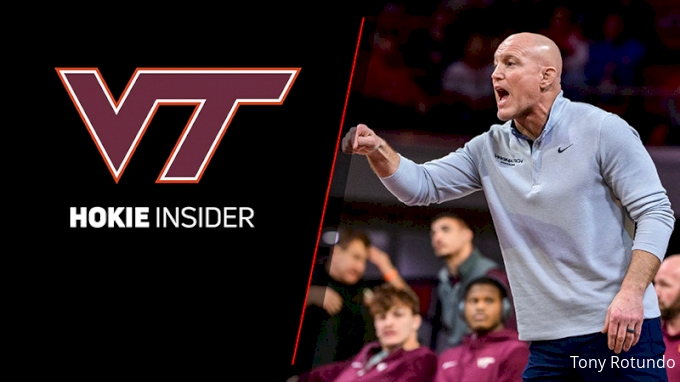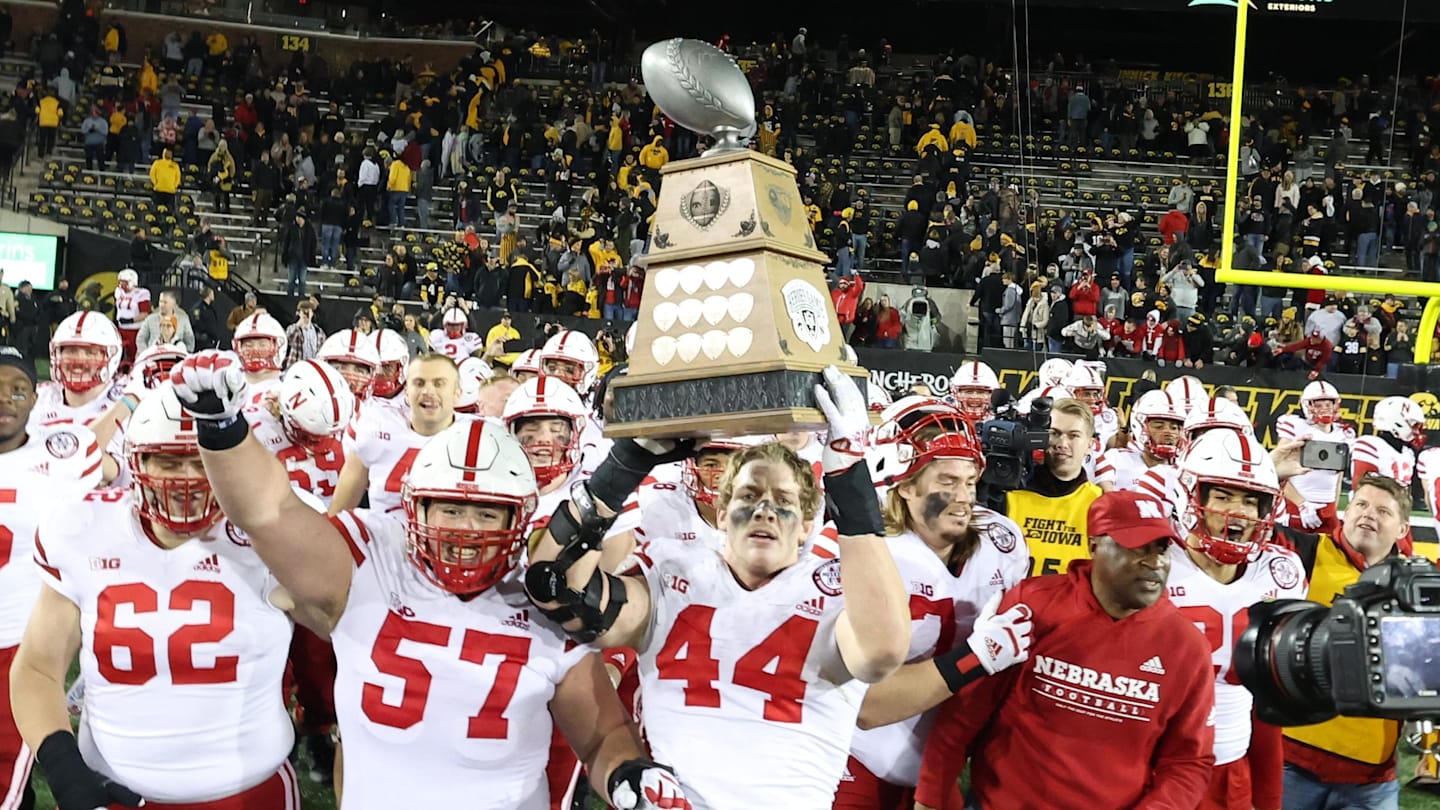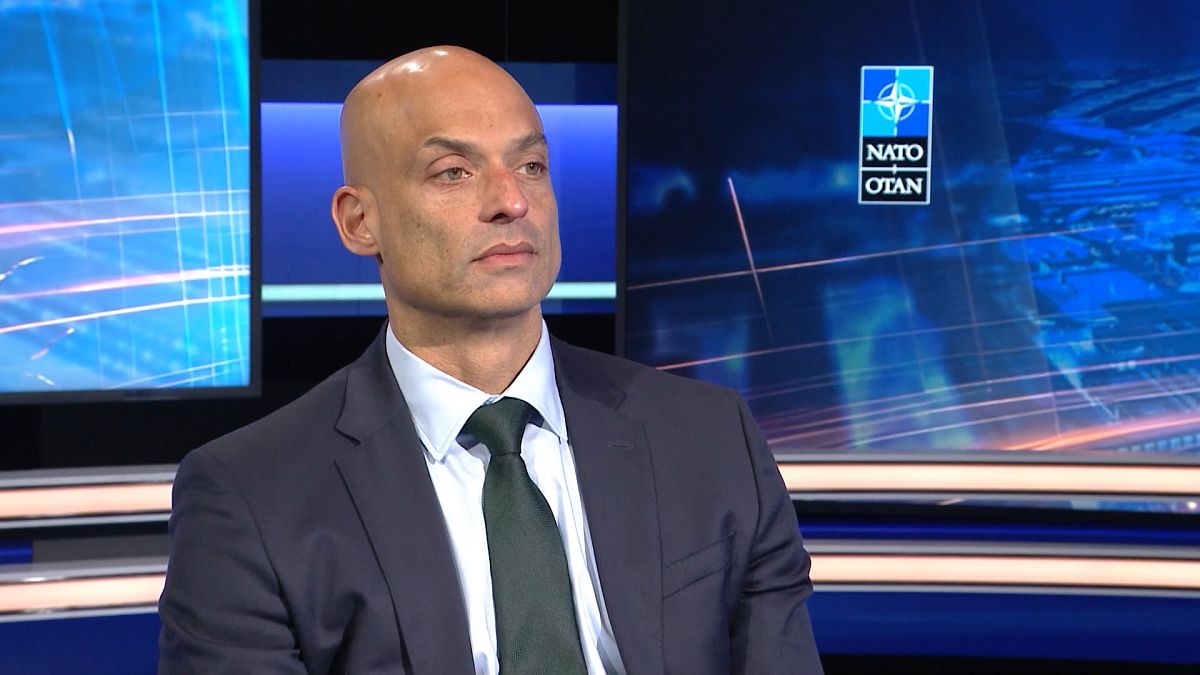Virginia
Trump’s Former Head of the EPA Has Been a Quiet Contributor to Virginia’s Exit From RGGI – Inside Climate News

In the days after Republican Glenn Youngkin took office as Virginia’s governor, he issued a series of sprawling executive orders, some of which caused a stir in the media for their partisan nature.
Order number one triggered an immediate review to identify any “critical race theory” being taught in the state. Executive order six began the process of reexamining COVID-19 regulations in Virginia. Order number nine tasked the state’s Department of Environmental Quality (DEQ) and his Secretary of Natural and Historic Resources with reevaluating Virginia’s participation in the Regional Greenhouse Gas Initiative, a market-driven environmental policy that makes fossil-fuel-powered electricity generators pay for their carbon emissions, and, in Virginia, redistributes those funds to low-income and flood-prone communities to combat climate change.
Environmentalists and legal experts were not surprised; as governor-elect in December 2021, Youngkin had told a group of business owners he would remove Virginia from RGGI (pronounced reggie), The Washington Post reported.
What did come as a shock was Youngkin’s pick for Secretary of Natural and Historic Resources: Andrew Wheeler, Donald Trump’s former head of the Environmental Protection Agency (EPA).
The uproar from environmentalists in Virginia, and input from over 140 former EPA employees, was enough for Senate Democrats to block Wheeler’s nomination as secretary of natural resources. Still, Youngkin found a way to keep him in the fold, creating a new Office of Regulatory Management for Wheeler to run.
With Wheeler in that perch, environmentalists in Virginia have had a hard time figuring out what he has been up to. But now it’s clear that a regulatory review template Wheeler produced in his new role has become the basis for assessing and promoting the state’s impending exit from RGGI, which Nate Benforado, a senior attorney with the Southern Environmental Law Center, has called “a disaster of a decision.”
The Air Pollution Control Board filled out the template in June as part of the administrative process for exiting RGGI, and the document adheres closely to the arguments advanced in a cost-benefit analysis released by Youngkin in March 2022, just after Democrats in the Virginia Senate refused to confirm Wheeler.
The analysis appeared on letter head that listed Wheeler as Secretary of Natural and Historic Resources, but Macaulay Porter, Youngkin’s press secretary, insisted Wheeler had no involvement in the cost-benefit analysis, which she said had been written by the Department of Environmental Quality (DEQ).
Environmental organizations in Virginia do not believe the Youngkin administration has legal grounds for exiting RGGI, and independent economists have conducted analyses which call into question the administration’s rationale.
One economist suggested the administration’s cost-benefit analysis is better understood as a political document, reflecting the authors’ desire to remove Virginia from RGGI without criticizing market-driven policies—an ideological totem of the Republican party. Regardless, the Youngkin administration has pushed ahead with its repeal of RGGI.
Wheeler did not respond to a request for comment for this story.
A Lobbyist for Fossil Fuels
After receiving a law degree from Washington University in St. Louis, Wheeler began his career as a special assistant in the EPA’s Pollution Prevention and Toxics Office in the early 1990s. From there, he worked his way through various staff roles in the U.S. Senate, and went back to school for an MBA from George Mason University, before taking a job as a lobbyist at Faegre Baker Daniels LLP in 2009.
With connections from his days in the Senate, Wheeler lobbied on behalf of fossil fuel companies, helping Murray Energy, a coal mining company, defeat a congressional plan to limit and put a price on carbon emissions, and fighting the Obama administration’s Clean Power Plan on the company’s behalf.
After spending almost a decade as an energy lobbyist, Wheeler was appointed by Trump as the fifteenth head of the EPA, a post he held from 2019 to 2021. At the helm of the EPA, Wheeler executed an agenda of environmental deregulation former employees would later call an “extreme pursuit of ideology over science, the law, and stakeholder input,” in an open letter to Virginia state lawmakers. He rolled back methane emissions standards for oil and gas projects that even those companies supported, and EPA employees estimated he undid over 50 significant environmental regulations during his tenure.
On February 8th, 2022, Virginia Senate Democrats rejected Wheeler’s nomination in a narrow vote along party lines.
Just over a month after Wheeler failed to clear Virginia’s Senate as nominee for Secretary of Natural and Historic Resources, Youngkin released the cost-benefit analysis of RGGI on letter head that still listed Wheeler as Secretary of Natural and Historic Resources but was by signed by Michael Rolband, the director of the DEQ.
Youngkin’s Cost-Benefit Analysis
Under RGGI, 11 Eastern states participate in a “cap-and-trade” initiative, which sets caps on carbon emissions from their power sectors that decline each year as an incentive for utilities to reduce emissions and develop renewable energy sources. Those power generators must buy “allowances” at periodic auctions for each ton of carbon they will emit above the caps. In Virginia, the money raised by the purchases goes directly to programs for weatherization in low income households, and towards infrastructure projects combating flooding and sea-level rise, a unique use of the funds.
The report produced for Youngkin said that RGGI is “a bad construct that taxes consumers without providing incentives for change to the electricity producers.” Its authors argued that RGGI had created a tax because Dominion, the state’s largest utility provider, had increased its residential bills by an average of $2.39 per household to cover the costs of participating in RGGI, a move the Virginia Assembly authorized in the legislation that brought the Commonwealth into the program. Since Dominion could pass this cost along, they wrote, RGGI “fails to offer any incentive to change behavior.”
Bill Shobe, a professor of public policy at the University of Virginia and an architect of some of RGGI’s provisions, called this reasoning “just dead wrong.”
“This is really poor work,” he said of the analysis. “It would be failing work for an undergraduate.”
Shobe started with the RGGI “tax,” which he called “rhetorical fluff” in a public comment responding to the cost-benefit analysis. He pointed out that the cost of generating electricity with coal or natural gas can be passed through to the consumer, just like RGGI allowances, yet nowhere does the report mention this fact.
But what really baffled and frustrated Shobe was the assertion that RGGI does not incentivize fossil-fuel-powered generators to reduce their emissions.
The movement of electricity across almost all of Virginia is made possible by PJM Interconnection, a regional transmission organization Virginia uses to manage the operation of its grid. Every day, PJM holds an auction for the anticipated electrical needs of tomorrow. Each power-generator—fossil fuel, nuclear, and renewable—submits a bid in this auction; as part of their bid, they include their “marginal costs of generating energy,” Shobe said—in other words, how much money they have to spend to make electricity. The bidding process ends when the forecast for electrical demand has been met.
Coal must be mined, then burned for energy, and natural gas is usually piped from the earth to make electricity, creating labor and equipment costs associated with harnessing fossil fuels that become part of their marginal costs. These costs to acquire the resource from which electricity is generated do not exist with renewables, Shobe said, since it does not cost a company anything for the sun to shine and the wind to blow, typically making them cheaper at auction.
“As more emission-intensive generators have to bid higher marginal costs into the auction, they’re not going to get chosen as often as the sources with lower emission costs,” Shobe said. RGGI “makes a huge difference in which plants get selected to operate,” because fossil-fuel-powered generators must also add the cost of purchasing RGGI allowances to the marginal cost in their bid, he continued. Charging power generators for emissions “tends to push electricity production towards lower emitting sources and away from higher emitting sources.”
He said the Youngkin document “isn’t a cost benefit analysis. It’s a political argument” in favor of fossil fuels.
Benforado, the Southern Environmental Law Center’s lead attorney on RGGI in Virginia, expressed a similar opinion, calling the analysis “a means to get rid of regulation they don’t like.”
In response to Benforado and Shobe’s assessment of the document, Porter reiterated the administration’s claim that “RGGI was a regressive tax on Virginia families and does nothing to reduce pollution. Virginians deserve better and that’s why they elected a Governor that delivered on his promise to withdraw the Commonwealth from RGGI.” Robland did not respond to multiple requests for comment.
The cost-benefit analysis also fails to include the many benefits to Virginia from being in RGGI, Shobe said. The combined $617.5 million dollars that low-income Virginians and flood-prone communities have received from RGGI to help fight climate change since the state adopted the program are not discussed in detail anywhere in the document.
Since the Youngkin Administration is trying to push Virginia out of RGGI through executive action, as opposed to an act of the legislature, Benforado said all of the arguments in the cost-benefit analysis are besides the point.
Joining RGGI, he said, was “a decision that the General Assembly made. And they decided that this was not for the Air Pollution Control Board or the Office of Regulatory Management” to decide. Any changes to RGGI must be made through the same law making procedures that brought Virginia into the regional pact, he argued. “This is not their decision,” he said of the Youngkin offices.
The original cost-benefit analysis appears to have been sent to Youngkin on Mar. 11, 2022, a day before the end of the legislative assembly in Virginia and the last day Wheeler would hold the title of acting Secretary of Natural and Historic Resources.
Benforado said he wasn’t totally convinced Wheeler was merely a bystander to the RGGI proceedings, despite the Youngkin administration’s denial of his involvement. “We didn’t see the drafts. We didn’t see who made the changes,” to the cost-benefit document. “But, you know, his name is on it,” Benforado said. “So I certainly think he had a hand in crafting it.”
Differing Stances on RGGI
This February, almost a year to the day after his nomination for a post in the Youngkin administration was denied, Wheeler appeared as a guest on George Mason University’s “Gray Matters” podcast, this time as the head of the brand new Office of Regulatory Management, created last summer by Youngkin through executive order 19. In the order, Youngkin called for a “25% reduction in regulatory requirements” and an “increased transparency” in Virginia’s regulatory process.
Wheeler sounded onboard. “I fundamentally believe that everyone has a right to know the information impacting their communities,” he said.
Despite the commitment to transparency, it is difficult to find information from the Office of Regulatory Management. The office does not have its own website; instead, it posts “resources” on the bottom of Virginia’s Regulatory Town Hall website, which predates Wheeler’s office and which Wheeler said is “showing its age.” None of the documents from the Office of Regulatory Management list an email or contact information for their office.
Wheeler and his aide, Reeve Bull, were on the podcast, a joint-production by George Mason and the university’s Antonin Scalia Law School, to talk about a new regulatory economic analysis manual they had created for agencies in Virginia to fill out as they implement, roll-back or reevaluate regulations across the Commonwealth.
At the EPA, Wheeler enjoyed “a whole office of economists, and they would write the economic impact analysis for our regulations,” he said. “There is a small team of economists within the finance department,” Wheeler continued, referring to Virginia’s Department of Planning and Budget, “that does a cursory review of the regulations,” limited in its scope and constrained by tight deadlines.
“And so we’ve jumped in and put together a manual that I believe is going to be the ‘go to’ manual for states across the country on how to conduct cost impact analysis for non-economists,” he said.
Wheeler tasked Bull with drafting the manual. “I think in some ways I was perhaps the perfect person to write this,” said Bull. “I’m kind of a dilettante myself, and this is the extent of my economics.”
Shobe called the manual “totally incomplete.” A proper economic review form is “not something you can expect just anybody at any agency to fill out,” he said. “It requires training in the proper methodology of benefit-cost analysis.” As it’s currently written, Shobe said, the Wheeler-Bull manual does not offer “enough guidance for an agency to follow in doing real benefit-cost analysis.”
The Air Pollution Control Board, which voted 4-3 in June to withdraw from RGGI, makes no mention of the costs of carbon emissions on the Office of Regulatory Mnagement’s review form it completed in support of withdrawal from RGGI. The document also makes no mention of losing millions of dollars communities now receive from utilities under RGGI to fight climate change. Instead, the form cites “direct benefits” to consumers, which it says are discussed more fully in the cost-benefit analysis published in March 2022.
The board repeated the RGGI-as-consumer-tax argument, saying that consumers in Virginia will benefit because Dominion will no longer be able to “pass along costs” of participating in RGGI.
The Department of Planning and Budget’s (DPB) cost-benefit analysis noted that Dominion and Appalachian Power, the state’s other major utility, were able to recover the cost of participating in RGGI by passing them onto consumers and said: “The incentive to reduce CO2 emissions due to RGGI participation is reduced, as long as allowances are not in very short supply.” But the DPB stopped short of declaring that RGGI created no incentive to reduce emissions, as the Air Pollution Control Board claimed in its economic review form.
Keep Environmental Journalism Alive
ICN provides award-winning climate coverage free of charge and advertising. We rely on donations from readers like you to keep going.
Donate Now
In describing the potential costs of yanking Virginia out of RGGI, the DPB noted that Virginia has received over $600 million in funding through RGGI, saying “to the extent that this funding is not replaced from other funding sources, the benefits from the programs would be lost if this regulation were to be repealed and Virginia leaves RGGI.”
The Youngkin administration has pointed to the Virginia Clean Economy Act, which mandates that Dominion and Appalachian Power both rely solely on renewable energy by mid-century, and to a proposed increase in funding for climate adaptation under a revolving loan program, as replacements to RGGI funding.
Contractors involved in weatherization projects funded by RGGI and conservationists have said that the scale and scope of RGGI’s funds make it unlikely that they could be adequately replaced by a revolving state loan program.
When it came time to assess alternatives to this regulatory action, the DPB said “there are no clear alternative methods that both reduce adverse impact and meet the intended policy goals.”
Only the Office of Regulatory Management’s cost-benefit analysis of RGGI appears under the documents listed alongside the final regulation.
Meanwhile, Virginia has not yet withdrawn from RGGI. The move would have to be formally announced and published by the state’s registrar, and any legal challenges to the process would have to be filed within 30 days of the repeal’s publication. “We and our partners are considering every option and we certainly remain convinced that RGGI is working and needs to be defended,” said Benforado. The state, in any event, does not plan to stop selling allowances until the end of 2023.

Virginia
NBA Draft: West Virginia Duo Produce Big Numbers in Upset Over No. 3 Gonzaga

West Virginia got off to a hot start at the Bad Boy Mowers Battle 4 Atlantis by knocking off undefeated Gonzaga 86-78 in overtime in their first-round matchup. The Mountaineers have received strong performances to begin the season from two upperclassman transfers: Javon Small and Tucker DeVries.
With each player delivering standout performances, it’s time to start considering them seriously as draft prospects.
Let’s take a closer look at their outings in this big win and dive into their seasons as a whole up to this point.
Tucker DeVries finished this game with a stuffed stat line of 16 points, six rebounds, four assists, two steals and four blocks. This level of versatility clearly illustrates the type of player he is, as he looked solid in nearly every aspect of the game. He has good positional size at 6-foot-7 and plays with a very high IQ on both ends of the floor. His defensive impact was especially noticeable, as he consistently made impactful plays, including a steal that led to free throws to tie the game at the end of regulation. DeVries finished the second half on a 5-0 run, which gave West Virginia momentum to capture the game in overtime.
DeVries has had a solid all-around season leading up to this performance, averaging 13.5 points, 4.8 rebounds, two assists, 2.5 steals and 1.3 blocks, with shooting splits of 36.6%/40.7%/81.3%. If he were to be drafted following this season, it would likely be in the second round, but his versatile play style is very promising.
Javon Small led the Mountaineers in scoring during this upset victory, contributing 31 points on impressive shooting splits of 50%/40%/81.8%. In addition to his scoring, he also grabbed seven rebounds, dished out two assists and added one steal and one block. Small is a quick and slippery guard who stayed in attack mode throughout the game, translating well into fast-break opportunities. Rarely staying in one spot on offense, Small kept the floor spaced and forced his defender to fight through traffic to keep up with him. His offensive approach was patient as he waited for his defender to get off balance before attacking.
Before this game, Small had averaged 15.5 points, 3.3 rebounds, four assists and three steals. He leads the Mountaineers in points, assists, and steals, while providing a noticeable spark on a nightly basis. Small is now at his third school in four years, with similar statistics in each of his previous two seasons. As an older guard, it is not guaranteed that he will be drafted, but if this level of productivity continues throughout the season, he may receive an opportunity to prove himself at the next level.
Want to join the discussion? Like Draft Digest on Facebook and follow us on Twitter to stay up to date on all the latest NBA Draft news. You can also meet the team behind the coverage.
Virginia
Virginia Tech Football: Three Keys to Victory for the Hokies on Saturday vs Virginia

The rivalry matchup between Virginia Tech and Virginia is nearly 48 hours away and it is a big matchup for both teams. The Hokies and the Cavaliers are both 5-6 and needing a win to make a bowl game. The loser will be getting a headstart on 2025 instead of playing in the postseason.
At the start of the year, Virginia Tech was being talked about as one of the biggest surprise teams not just in the ACC, but in the country. This team’s biggest goals have gone away, but they still have an opportunity to reach a bowl game for the second straight season. That should still be a big deal to the program, but on the other side, the Cavaliers are trying to make a bowl game for the first time under Tony Elliott. They are going to be fired up about playing in this game and having a chance to make a bowl game, so Virginia Tech can’t take it for granted, no matter their past success vs Virginia.
So what are the keys to a win for Virginia Tech on Saturday?
Before you could even blink on Saturday night, Virginia Tech was trailing Duke 14-0 thanks to two long touchdown plays and the Blue Devils have not been a very explosive offense this season. Virginia has found a way to put points on teams like Clemson and Louisville this season and has improved since last year. The Hokies’ pass rush was non-existent on Saturday vs Duke, finishing with no sacks and being unable to disrupt Duke quarterback Maalik Murphy. They will have to be able to play better on Saturday if they want to avoid the upset.
It is still up in the air who is going to play quarterback for the Hokies on Saturday night, but whoever it is would benefit from a big game from one of the nation’s best running backs. Tuten had 84 yards on 19 carries last week, but Virginia Tech might need more than that on Saturday when the face the Cavaliers.
Our own RJ Schafer wrote this about the quarterbavck situation heading into Saturday’s game:
“Brent Pry listed both Kyron Drones and Collin Schlee as questionable ahead of the historic matchup. He added that both will practice, although very limited, and they could “just be watching” from the sidelines.
Coach Pry also added that Virginia Tech is preparing four quarterbacks to be ready to play this weekend, including Davi Belfort, a freshman quarterback from Brazil, a country which could begin to be the future of American college football.
Whoever plays this weekend is going to have to have to manage the game and not turn the ball over. I think the offense is going rely on the run game heavily this weekend due to that.
Additional Links:
Virginia Tech Football Releases Depth Chart Ahead of Matchup Against Virginia
Virginia Tech Football: PFF Grades and Snap Counts For Every Player in Saturday’s Loss to Duke
Virginia Tech Football: Updated Bowl Projections For The Hokies Heading Into Final Game
Virginia
Big Tests On The Horizon For Virginia Tech Wrestling – FloWrestling

At 3-0 with marquee victories over #6 Missouri (23-10) and #21 Rutgers (26-11), as well as a second-place finish in the Keystone Open with just a handful of starters competing, Virginia Tech has swept through a tough November and is prepared for a difficult December.
The Hokies, #12 in Flo’s team tournament ratings but top 10 in various dual-meet rankings, are next scheduled for an annual trip to Las Vegas for the Cliff Keen Invitational, featuring 27 teams, of which 14 are among Flo’s top 25. And then it’s another trip west to Stillwater on Dec. 19 to challenge #5 Oklahoma State in a rare Thursday match.
The early key thus far for the Hokies has been the ability to win the bouts they’re supposed to win and grabbing a fair share of so-called toss-up bouts.
To wit, Tech’s #18 Sam Latona downing Missouri’s #13 Josh Edmond (4-2) at 141, or #25 Rafael Hipolito majoring the Tigers’ #32 James Conway (11-3) at 157 and #15 Jimmy Mullen stopping #20 Seth Nitzel (4-2) at heavyweight.
That trend continued at Tech’s Moss Arts Center match against #21 Rutgers when Latona used a late takedown to defeat Joey Olivieri 7-5, #4 Lennox Wolak pinned veteran Jackson Turley at 174 and #9 Andy Smith slipped past #17 John Poznanski 4-3 at 197.
Hokies coach Tony Robie only took a few regulars to the Keystone Open in Philadelphia and, led by championship efforts by #1-ranked Caleb Henson at 149 and heavyweight Hunter Catka, Tech placed second behind Lock Haven. Latona placed third at 141 and Sam Fisher did the same at 184.
Robie opted to use the Hokies’ roster as freshmen Dillon Campbell (125), Matt Henrich (157), Luke Robie (157) and Jack Bastarrika (133) competed as did redshirt juniors Jackson Spires (165) and Ty Finn (174). Spires placed second.
Who’s Ready For Change?
With legislation on the NCAA’s table affecting scholarship and roster limits — unlimited scholarships and a roster cap — as well as revenue sharing, some college wrestling programs likely have a serious dose of trepidation while others are confident they can deal with whatever happens.
Virginia Tech sits in the latter category.
“I have no concerns whatsoever about that,” Robie said earlier this month. “I think a lot of it probably will happen. It’s hard to say whether it’s good or bad for the sport; that’s not really for me to say. What I will say is you have to adjust with what the rules are and what the landscape of college athletics looks like, and that’s what we intend on doing.
“Is it good for the overall health of the sport of wrestling? The kid that’s the 35th kid on your roster? Probably not. But I think definitely there were probably some things that needed to change; the pendulum was starting to swing significantly the other way. At some point, it’ll probably start to go back to the middle.”
Robie said all anyone can do is wait for the final decisions.
“We have some contingency plans based on what we think is going to happen and we’ll move forward with our plan and try to execute it,” he said.
A Pretty Good Gig
Robie, in his eighth year as head coach, has been at Tech since 2006 and as each season passes, the commitment and enthusiasm remain the same.
“Well, you get to do what you like to do. And it’s a pretty cool thing to be able to coach wrestling for a living and be a part of a pretty good program, and work with some great people and try to affect the lives of the kids in your program,” he said.
“I think anybody would want to do that. For me, I’m not young anymore. I turned 50 … who knows how long I’m going to do it, but I’m going to give it the best I can while I’m doing it and hopefully continue to improve as a program and try to try to help these guys as much as possible. But it’s good, Virginia Tech’s a great place to work, it’s a great place to live. I’ve got a great staff and it makes my life pretty easy.”
-

 Science1 week ago
Science1 week agoTrump nominates Dr. Oz to head Medicare and Medicaid and help take on 'illness industrial complex'
-

 Health6 days ago
Health6 days agoHoliday gatherings can lead to stress eating: Try these 5 tips to control it
-

 Health3 days ago
Health3 days agoCheekyMD Offers Needle-Free GLP-1s | Woman's World
-

 Science2 days ago
Science2 days agoDespite warnings from bird flu experts, it's business as usual in California dairy country
-

 Technology2 days ago
Technology2 days agoLost access? Here’s how to reclaim your Facebook account
-

 Science1 week ago
Science1 week agoAlameda County child believed to be latest case of bird flu; source unknown
-

 Sports1 week ago
Sports1 week agoBehind Comcast's big TV deal: a bleak picture for once mighty cable industry
-

 Entertainment19 hours ago
Entertainment19 hours agoReview: A tense household becomes a metaphor for Iran's divisions in 'The Seed of the Sacred Fig'















